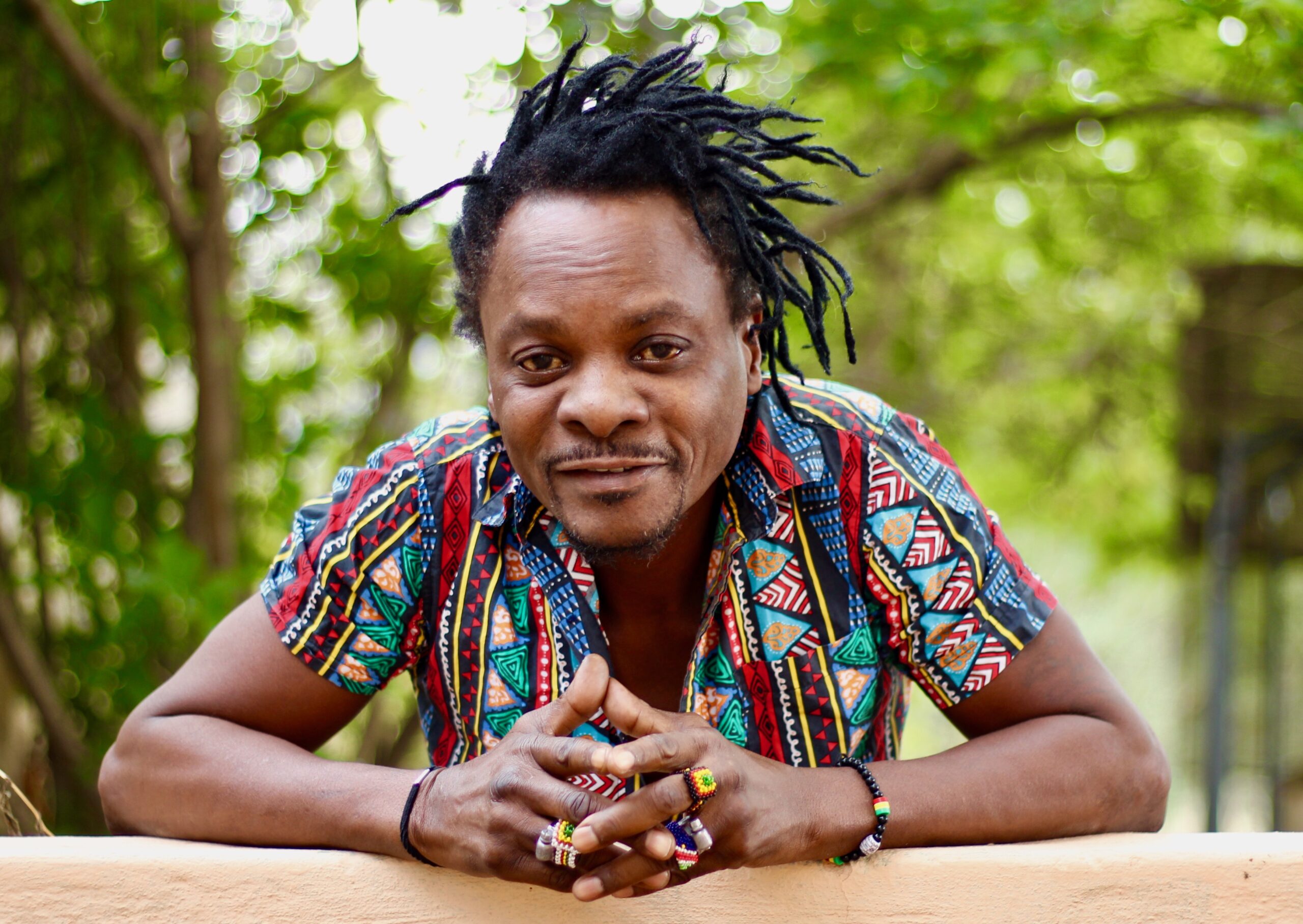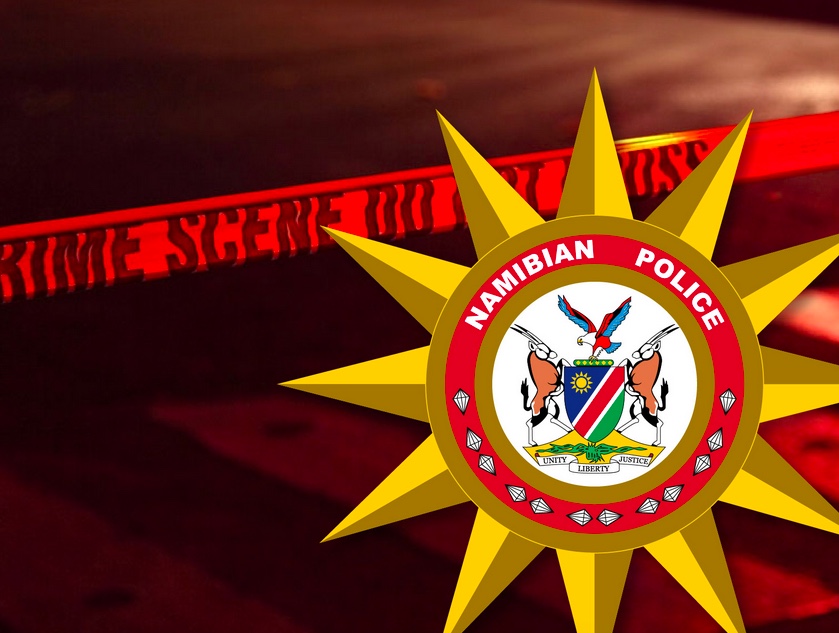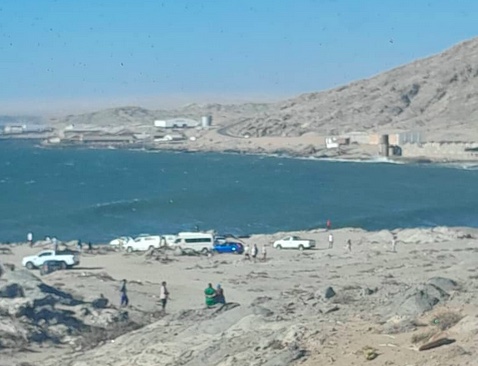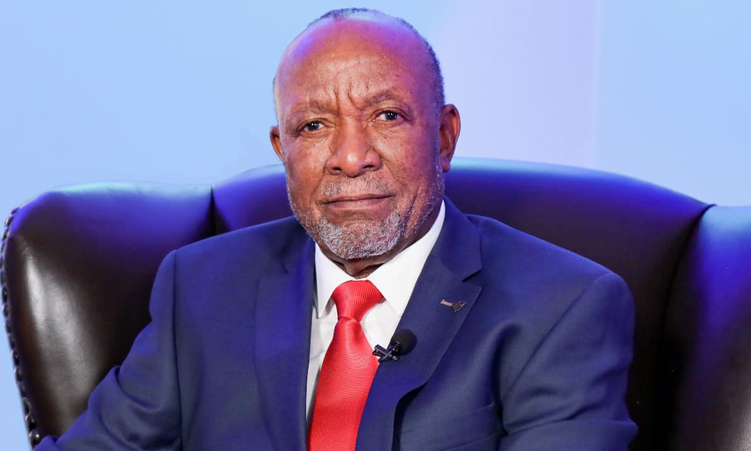Reggae superstar Ras Sheehama is undoubtedly one of Namibia’s most internationally recognisable musicians.
Born Hans Sheehama at the village Onakayale near Ombalantu in the Omusati region, few would argue against the notion that Sheehama is one of (if not the) best reggae musicians in the country.
But unlike many reggae artists around the world, Sheehama says he is not a member of the Rastafari religion and his Rastafarian influences stem from the teachings of Emperor Haile Selassie that he got to know.
He simply considers himself a rebel rasta and not a saint rasta, because of his rebellious nature.
“Rastafari is neither a way of life or culture for me. I don’t really practise the religion, or go to a Rastafari church or neither do I even follow that religion,” he says.
As a child, Sheehama lived briefly at Ongwediva before he moved to Omwandi wa Kamanya, a village near Ondangwa, where his father had a business. This is where he started his education at Olukolo Primary School.
“I was first introduced to music in the form of the hand clapping and church choirs back in my home village. The choirs just got better when I went to stay with my father at Ondangwa. The choirs of Ondangwa were more creative and innovative,” Sheehama says.
“I was never really formally introduced to music. We would always sneak out of our house and go to the bars and cuca shops where people played popular music and enjoy whatever we heard. Mind you, we were just primary school pupils at the time.”
In 1979, when Sheehama was just 12 years old, he joined a group of young boys from his village who adhered to the call of the revolution, crossing the northern Namibian border into Angola to join Swapo in exile in Lubango and later in Cuanza Sul.
He says he met Namibian music icon Jackson Kaujeua, who was just returning from overseas, in a Cuanza Sul refugee camp in Angola for the first time. At the time, Kaujeua used to play at social events in the refugee camp.
“I joined a group of young boys who showed a keen interest in music and we got hold of a broken self-made guitar which only had three strings. One guy who hailed from Katima Mulilo and who also had a guitar fixed the guitar, which we named ‘African Tune’,” he recalls.
“I could not play the guitar at all but some of my mates could play little chords and they were just strumming something made up in their own minds. I was still not able to read or write music by the time I left Zambia to go to secondary school in Lagos, Nigeria,” he says.
Sheehama, along with other young boys who could read and write, was taken to a different camp for military training but they were called back six months later and sent to Nigeria.
He says life in exile was quite different from home, but also similar in some ways.
Apart from the restrictions, rules and regulations that came from life in a refugee camp, the setup was almost similar to that of life back home in the village.
“Surviving life in exile in the refugee camps was tough. In fact, so tough that it prepared us to survive life in this tough country and the insecure music industry we are in today.
“Life in exile was not a bed of roses because we were constantly living in fear, not only to be struck by a bullet from the gun of the enemy but just even from a snakebite,” Sheehama says.
Sheehama started playing the guitar in Nigeria as part of a student band that performed popular hits of the time.
“In fact, ‘Cassinga’ was written in the classroom with the help of my classmates who were making sounds by beating on their desks as I penned down the words, that is why you can even see that the song does not have many words, really,” says Sheehama, adding that he was still in Namibia when the Cassinga refugee camp was attacked by South African soldiers in May 1978.
Sheehama used his allowance, with which he was supposed to buy food and toiletries, to make his first demo tape in Nigeria.
He joined Swapo’s Ndilimani Cultural Troupe on his return to Angola from Nigeria, and he would sing his own songs accompanied by his acoustic guitar.
“I could not contain my joy when it was announced that we would be returning to Namibia to participate in the first free elections to lead to Namibia’s independence. I was in the very first repatriation group that was led by the country’s current president Hage Geingob.
“We [Ndilimani] were tasked to provide music at the star rallies that started Swapo’s election campaign. I was only 12 when I left the country, so I was understandably looking forward to returning to my country of birth as a young adult,” he says.
He points out, however, that he had to leave Ndilimani to pursue a solo career.
“I could only see myself as a solo artist and had my own way of doing things and my own plans. I wanted to grow as an artist and didn’t want to be caught up in the web of advancing other people’s agendas while forgetting the realities of life.
“Ndilimani is a political band and I would be compromised to remain with the group, so I just opted to set myself free. There is no beef with the band members at all and whenever they perform at national events, I would walk up to the stage and sing along,” he says.
Since 1990, he has released several LPs and cassettes which are only available in Namibia and South Africa. From these tapes came several hits, like ‘Cassinga’, ‘Push And Pull’, ‘City Young Girl’ and ‘Inotila’, which have all become street anthems in Namibia and are still popular among both young and old fans.
Says fellow musician Setson Wahengo: “Ras Sheehama’s talent is unquestionable. I respect the fact that he, together with the late Jackson Kaujeua, were the pioneers of Namibian music and they are the first musicians to promote our music outside our borders and overseas.
“Ras was definitely an inspiration to the younger generation like myself. There was a time that we worked together and he really impressed me with his level of creativity. He is one artist who will just grab a guitar and start composing a song out of nothing.”
In fact, the Mighty Dreads’ founder and lead singer comes close to describing Sheehama as a musical genuis when fully focused.
Sheehama celebrated his first show in Germany together with Lucky Dube’s former band, Slaves, at the Africa Festival in Würzburg in 1999.
He has also performed in the United Kingdom, Cuba, Portugal and Switzerland, and opened the show for Manu Dibango in Windhoek in 1995, as well as for the legendary reggae superstar Don Carlos in Johannesburg in 2001.
Stay informed with The Namibian – your source for credible journalism. Get in-depth reporting and opinions for
only N$85 a month. Invest in journalism, invest in democracy –
Subscribe Now!







